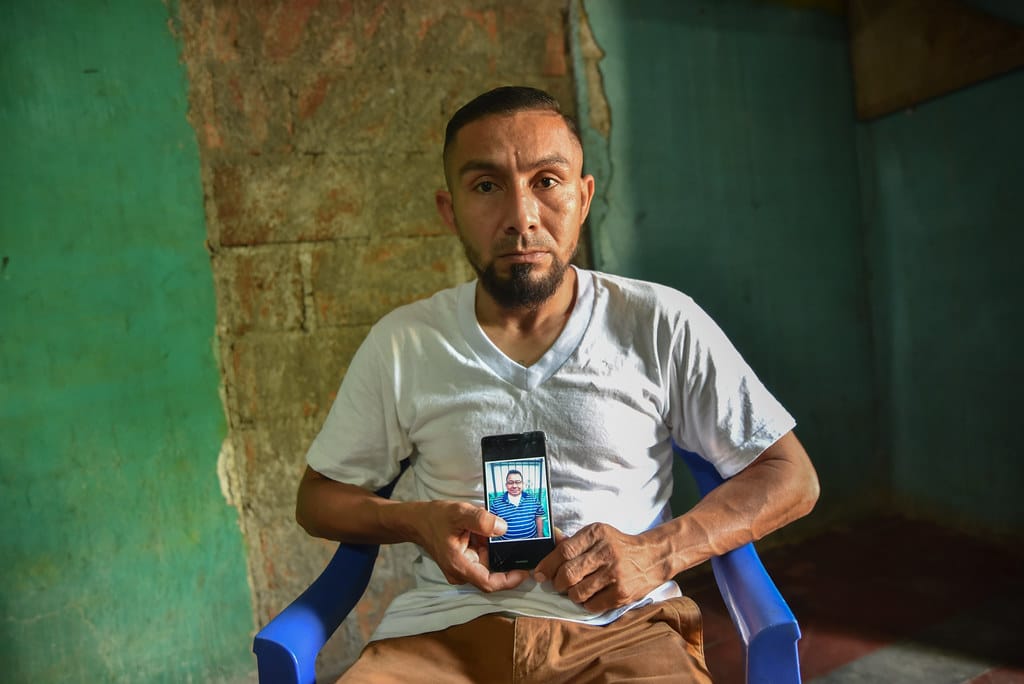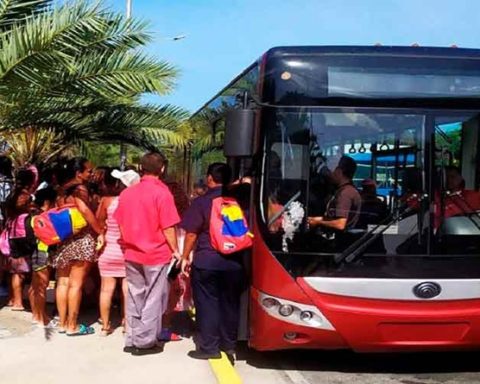A wave of blinding snow and strong winds battered the eastern United States into the early hours of Sunday, amid one of the most severe winter storms in years that caused transportation chaos and power outages.
The snow storm considered “potentially deadly” by the authorities practically paralyzed the routine of that region inhabited by some 70 million people, also leading to the cancellation of almost 4,700 flights scheduled for the weekend at different airports in the region.
Large cities such as New York and Boston were the most affected by the storm, which the National Weather Service (NWS) confirmed intensified over the course of Saturday to become a “bomb cyclone”, characterized by falls strong rapids of atmospheric pressure
The hardest-hit parts of New York and Massachusetts received about 24 inches of snow as of early Saturday afternoon, with more than 95,000 homes without power in the latter state.
The snow in Boston equaled the record for a day recorded in 2003 with almost 60 centimeters of snow according to the NWS.
The NWS had already warned in the northeastern part of the United States that the winds could reach between 80 and 120 km/h and make “travel conditions almost impossible.”
New York and the neighboring state of New Jersey, in addition to Virginia, Maryland and Delaware, declared emergencies for all or part of those states.
The metro network of the “Big Apple” has worked almost normally and, as usual in bad weather, has provided shelter to thousands of homeless people during the storm. The authorities recommended that residents avoid unnecessary transfers due to the risks derived from the inclement weather.
Salt spreaders and snow plows were bustling in New York, where the famous Central Park was covered by about 19 centimeters of snow and regional train lines were partially paralyzed. In Times Square, the heart of the city, the neon signs on the billboards faded into the frigid air.
But the frigid temperatures didn’t intimidate Robert Burck, a street artist known as the “Naked Cowboy.” Dressed only in underwear, a hat and classic American cowboy boots, he walked around the tourist spot playing his guitar.
On Long Island, a populous island in southeastern New York state, authorities said a woman had been found dead in her car by a snowplow operator.
Cold weather spread as far south as the touristy southeastern state of Florida, where the NWS warned of “scattered or isolated falling iguanas from trees” as cold temperatures temporarily paralyze large lizards.
Residents of towns and cities on the East Coast were urged to avoid all unnecessary travel during a second night of adverse conditions and additional snowfall is expected to be heavier in New England.
– Getting “pretty ugly” –
The governments of the states of New York and New Jersey declared a state of emergency and the mayor of Boston, Michelle Wu, declared a snow emergency.
Wu reminded on Twitter to “stay off the roads as much as possible.” “It’s going to get pretty ugly,” he said in a television interview on Saturday, noting that it was going to be “a historic storm.”
For his part, Massachusetts Governor Charlie Baker said the storm would bring “strong winds and a lot of snow” and that the eastern and southeastern coastal areas of the state would be “hit particularly hard.” He also said residents should not move on Sunday “unless absolutely necessary.”
Eric Calessandro, a homeowner in the town of Marshfield, near Boston, said he had just lost power but was optimistic his 8,000-watt generator would help him weather the odds.
For its part, the Boston Public Works Department said 900 snowplows were hard at work on the city’s streets.
Snowplow operator Mark Burns of the city’s South Shore said the snow had gotten heavy: “It was supposed to be light and fluffy, but now it’s a little wet.”
Some 3,500 flights, both domestic and international, were canceled Saturday in the United States, according to flight tracker FlightAware. Another 1,200 flights scheduled for this Sunday also had to be suspended.
The storm follows a similar one that blanketed much of eastern North America from Georgia to Canada with snow two weeks ago, leaving many homes without power and disrupting thousands of air connections.











